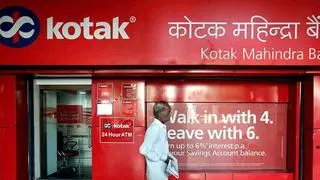The possibility of their other businesses coming under the Reserve Bank of India’s (RBI) supervisory purview may hold back large corporate/industrial houses from applying for a bank license, say experts.
An RBI internal working group recently recommended that large corporate/industrial houses may be allowed as promoters of banks. They will be allowed entry into the banking space only after necessary amendments to the Banking Regulations Act, 1949.
These amendments will deal with connected lending and exposures between the banks and other financial and non-financial group entities; and strengthening of the supervisory mechanism for large conglomerates, including consolidated supervision.
Under the lens
Baskar Babu R, MD & CEO, Suryoday Small Finance Bank, observed that once a corporate group gets a bank license, RBI will have the right to inspect or supervise the books of all other entities within the group. So, regulatory compliance at the group level can be a big challenge.
“A corporate may have multiple businesses, including a non-banking finance company (NBFC). If they convert the NBFC into a bank, on paper it looks good. But all other entities within the corporate will also come under RBI’s supervisory purview,” Babu said.
Given that raising resources is not a problem for some of the large corporates (probably their cost of borrowing is lower than many mid-sized banks), they will weigh whether they can square up to the challenge of compliance on group companies so that one entity can become a bank.
Consolidated supervision
Banking expert V Viswanathan opined that as part of consolidated supervision, a corporate group that gets a banking license will come under the purview of two regulators — RBI and SEBI. Currently, they are not under RBI.
“By becoming a bank license holder, a corporate becomes accountable to RBI also. The group has to ensure that it complies with the regulatory prescriptions of both the regulators,” he said.







Comments
Comments have to be in English, and in full sentences. They cannot be abusive or personal. Please abide by our community guidelines for posting your comments.
We have migrated to a new commenting platform. If you are already a registered user of TheHindu Businessline and logged in, you may continue to engage with our articles. If you do not have an account please register and login to post comments. Users can access their older comments by logging into their accounts on Vuukle.